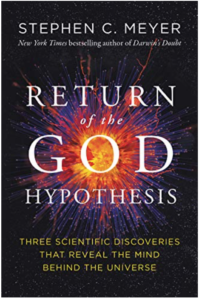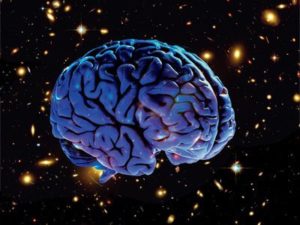Today is Stephen Meyer’s birthday! When he was fourteen he started questioning the meaning of life’s achievements and trophies when death ultimately concludes all will be forgotten. His worrying—he called it— became eventually “a fear of a fear of a fear.” At fourteen, he concluded his life was over.
 But enter the writings of the French philosopher, Jean-Paul Sartre, who concluded “No finite point has any meaning unless it has an infinite reference point.” What is the value of this life unless there is a transcendent personal God? One good thing became apparent to Meyer: he was not going insane; he was becoming a philosopher.
But enter the writings of the French philosopher, Jean-Paul Sartre, who concluded “No finite point has any meaning unless it has an infinite reference point.” What is the value of this life unless there is a transcendent personal God? One good thing became apparent to Meyer: he was not going insane; he was becoming a philosopher.
Eventually he learned that many in his generation were thinking the same thing because they, too, were being informed by the most educated and respected minds that God didn’t exist. The most popular and brilliant scientific minds concluded a materialistic interpretation of reality in which God was not needed to bring anything into existence. They pushed this metaphysical worldview in the educational system. The philosophy of the day became existentialism: that every person is alone responsible for the course of their own life. There is no eternal plan, for, there is no God.
It gets worse: the empiricist, David Hume, then argued, that the laws of nature depend on inductive reasoning (we learn any natural law by repeatedly observing the same result for a given controlled condition or cause). “But how dependable is our perception of things? ” Intelligent minds wanted to know. Darwin, himself, in later years, confided in a friend,
“With me the horrible doubt always arises whether the convictions of man’s mind, which has been developed from the mind of the lower animals, are of any value or at all trustworthy. Would anyone trust in the convictions of a monkey’s mind, if there are any convictions in such a mind?”

A Boltzmann Brain has a false perception and memory due to a wave fluctuation at the “Big Bang”
Maybe we all have “Boltzmann brains”. The theory says that at the time the universe was coming into existence there might have been a small fluctuation in the wave function from which the universe came [ψ] leading some of our brains to become Boltzmann brains instead of natural brains, in which our memories and perceptions were no longer reliable. [no joke!]
“I remember,” Meyer recalled, “looking at a windowsill in my bedroom and wondering if the impression of it in my mind accurately represented the actual object in the world.” It was inevitable that such a philosophy would come to question knowledge itself. “How do I know that my perceptions of reality are accurate?” he worried.
After teaching him to recognize an orange along with other fruit, I recall teaching our three year old son his colors. Pointing to the color “yellow” I asked “what color is this?” He responded cleverly, “Orange!” You see, oranges are naturally yellow in color; so, he was correct but we had some relearning to schedule.
 Viktor Frankl, who, little doubt, amassed profound wisdom from his experience in a German concentration camp, and who, consequently, wrote his classic work, “Man’s Search for Meaning,” reminded us that such questions are okay to ask.
Viktor Frankl, who, little doubt, amassed profound wisdom from his experience in a German concentration camp, and who, consequently, wrote his classic work, “Man’s Search for Meaning,” reminded us that such questions are okay to ask.
The real truth here is that we need God in our lives to get the answers.
Hebrews 11:6 [ESV] “Whoever would draw near to God must believe that he exists and that he rewards those who seek him.”

